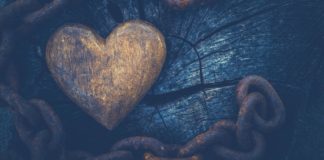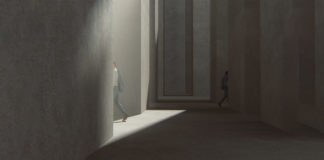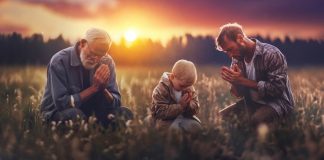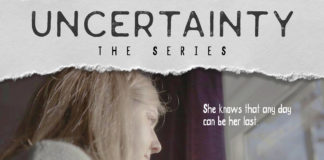COVID-19: Excerpt from a diary on the Great Britain front
Noemina is a graduate of the University of Hertfordshire, UK, where she majored in health care. She is working in her field as of 2012. The journal excerpt she sent to us reflects her week-long experience at the epicentre of the battle with the new coronavirus in the intensive care unit, where serious cases are admitted.
Lewis and the Lion
We have become so accustomed to authors and researchers being highly specialised in niche fields, that we are tempted to be skeptical of works they produce outside of their accepted field of expertise. It seems bizarre therefore that an author of children's literature could also be a professor at Oxford and Cambridge and an expert on the medieval era.
The tree that overshadowed the earth
"[Jesus] told them another parable: 'The kingdom of heaven is like a mustard seed, which a man took and planted in his field. Though it is the smallest of all seeds, yet when it grows, it is the largest of garden plants and becomes a tree, so that the birds come and perch in its branches.' He told them still another parable: 'The...
He believes and what he believes comes into being
Very few people have ever found rest in what they are and what they do. They are always seeking what they do not have and trying to become what they are not. These people talk about transformation, development and fulfilment but no matter their accomplishments or status, they are always thinking that they need to surpass their present state, that there is something...
Cringeworthy!
When a visitor walks into your church, what will they see? What will they hear? How will they feel?
The cry of contrasts
It is the spring of 31 A.D., halfway through the 70th prophetic week of Daniel 9:24. This passage from the book of Daniel predicts that between the command to build the city of Jerusalem—in the autumn of 457 BC—and the appearance of the Anointed One (the Messiah), 69 prophetic weeks or 483 years (a prophetic day corresponding to a calendar year, according to...
COVID-19: Hope ordinances and a divine governance
Fines, military ordinances, police and army patrolling the streets – this is the reality we have suddenly found ourselves living in. It is a tightening reality, a rigid corset-like structure of rules.
The one way road cancelled
I was there, I saw him. He was coming towards me mechanically, impassively, coldly. He suddenly stopped in front of me and waited for me to speak. For a moment, I froze. He was tall, thin, his face oval and his eyes blue, slightly sunken under his eyelids. I had met such people before, but there was something special about him.
I am not a sinner
I grew up in a small town called Utsunomiya, three hours away from Tokyo. When I was a child, I was certain that there was a God and that He loved me. Then I grew up and began to wonder, “If there is a good God, why is there so much suffering in the world? Why do innocent children die? Why is the...
How can I become authentic?
"Suppose I go to the Israelites…and they ask me, ‘What is his name?' Then what shall I tell them? God said to Moses, 'I AM who I AM. This is what you are to say to the Israelites: I AM has sent me to you'" (Exodus 3:13-14).
God also has a mother’s heart
Some Christians venerate the Virgin Mary, multiplying her attributes and exaggerating her qualities to the point of deification. Other Christians go to the opposite extreme and trivialise Mary's personality and contribution, barely recognising her basic qualities.
We are more than we can easily explain
Suppose I leave the window open then leave home. A stack of banknotes can be seen on the table through the open window. An individual walking down the street notices the opportunity, thinks for a while, but decides to move on. Why would a man who has the opportunity to steal decide not to?
God called Himself Father
In the heart of the Garden of Eden, where everything seems perfect, there is an ancient struggle between freedom and restriction—a struggle we have all experienced.
“Uncertainty: the series.” First episode of the international documentary online today
Live every day like it is your our last! Many use these phrase as a prop for their riskiest decision, or simply to justify a recklessly extravagant lifestyle. But what would our lives look like if we were to really live each day fully aware that it might be our last?
#SELFCARE for Christians
The concept of self care—defined as the entirety of ways in which a person understands how to solve their emotional problems and manage their anxieties—has become a real movement in the past two years with an entire industry ready to make our lives easier and more comfortable. For Christians, however, this trend has proven to be quite problematic: making our lives easier is...


























